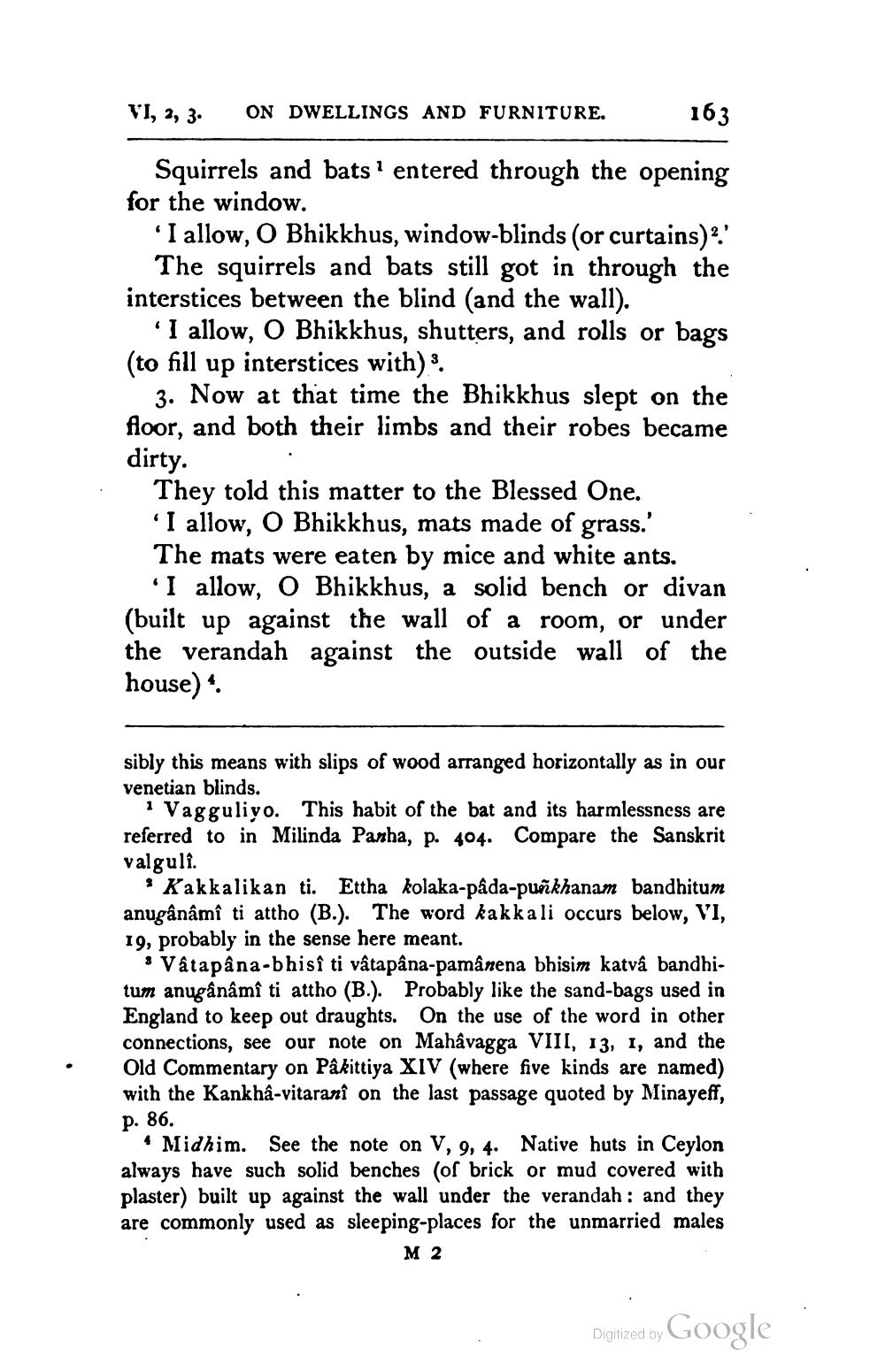________________
163
Squirrels and bats' entered through the opening for the window.
'I allow, O Bhikkhus, window-blinds (or curtains)'.' The squirrels and bats still got in through the interstices between the blind (and the wall).
'I allow, O Bhikkhus, shutters, and rolls or bags (to fill up interstices with) 3.
3. Now at that time the Bhikkhus slept on the floor, and both their limbs and their robes became dirty.
VI, 2, 3.
ON DWELLINGS AND FURNITURE.
They told this matter to the Blessed One. 'I allow, O Bhikkhus, mats made of grass.' The mats were eaten by mice and white ants. 'I allow, O Bhikkhus, a solid bench or divan (built up against the wall of a room, or under the verandah against the outside wall of the house)".
sibly this means with slips of wood arranged horizontally as in our venetian blinds.
Vagguliyo. This habit of the bat and its harmlessness are referred to in Milinda Pazha, p. 404. Compare the Sanskrit valguli.
Kakkalikan ti. Ettha kolaka-pâda-puñkhanam bandhitum anugânâmî ti attho (B.). The word kakkali occurs below, VI, 19, probably in the sense here meant.
Vâtapâna-bhisî ti vâtapâna-pamânena bhisim katvâ bandhitum anugânâmî ti attho (B.). Probably like the sand-bags used in England to keep out draughts. On the use of the word in other connections, see our note on Mahâvagga VIII, 13, 1, and the Old Commentary on Pâkittiya XIV (where five kinds are named) with the Kankhâ-vitarazî on the last passage quoted by Minayeff, p. 86.
Midhim. See the note on V, 9, 4. Native huts in Ceylon always have such solid benches (of brick or mud covered with plaster) built up against the wall under the verandah and they are commonly used as sleeping-places for the unmarried males
M 2
Digitized by Google




